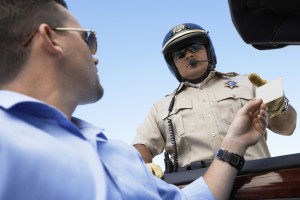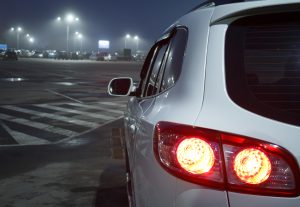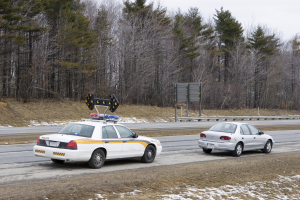 Imagine for a minute that your car is in the shop. You have some errands to run, so you borrow someone else’s car. A friend, a family member, a coworker, whomever. As you’re driving to the store, you see a police cruiser activate its lights and sirens to pull you over. You weren’t speeding, you didn’t drive over the lane line, you followed every traffic rule in the book. So why are you being pulled over? The officer walks up to your window and says you were stopped because the officer ran the car’s license plate and learned the registered owner of the car had their license revoked. The officer didn’t make any effort to determine whether that registered owner was actually driving the car: he just saw the revocation and pulled you over.
Imagine for a minute that your car is in the shop. You have some errands to run, so you borrow someone else’s car. A friend, a family member, a coworker, whomever. As you’re driving to the store, you see a police cruiser activate its lights and sirens to pull you over. You weren’t speeding, you didn’t drive over the lane line, you followed every traffic rule in the book. So why are you being pulled over? The officer walks up to your window and says you were stopped because the officer ran the car’s license plate and learned the registered owner of the car had their license revoked. The officer didn’t make any effort to determine whether that registered owner was actually driving the car: he just saw the revocation and pulled you over.
Is the officer allowed to do this?
Articles Tagged with Traffic Stops
Don’t Be A Target Of DUI / OVI Investigations

You may be more of a target than you think. When you think about people arrested for drunk driving, do you picture a car driving erratically all over the road? That’s a common misconception. Most stops resulting in DUI/OVI charges are for minor offenses: failing to signal, driving a little over the speed limit, crossing a lane line one time. Some are even for non-moving violations: burned-out headlight, no license plate light, expired registration. A case decided last week by the Ohio Supreme Court illustrates how a minor violation can lead to more serious charges.
Supreme Court Addresses Use Of Drug Dogs At Traffic Stops
If a police officer stops you for a minor traffic violation, how long should the officer be permitted to detain you? Suppose the officer issues you a ticket or a warning for the minor traffic violation and then says he wants you to wait while he has a drug dog sniff your car? What do you say? If you say no, can the officer do it anyway?
Recent Erosion Of Fourth Amendment Rights May Impact Ohio DUI/OVI Cases
Suppos e an officer detains a person for violating a traffic law and it turns out the person really didn’t violate the law: the officer was simply mistaken about what the law says. Until recently, one would expect that any evidence obtained after the mistaken detention would be thrown out. In a recent case, however, the U.S. Supreme Court concluded any evidence obtained after the officer mistakenly detained the person is not excluded from trial, so long as the officer’s mistaken belief about the law was reasonable.
e an officer detains a person for violating a traffic law and it turns out the person really didn’t violate the law: the officer was simply mistaken about what the law says. Until recently, one would expect that any evidence obtained after the mistaken detention would be thrown out. In a recent case, however, the U.S. Supreme Court concluded any evidence obtained after the officer mistakenly detained the person is not excluded from trial, so long as the officer’s mistaken belief about the law was reasonable.
 Columbus OVI/DUI Attorney Blog
Columbus OVI/DUI Attorney Blog


